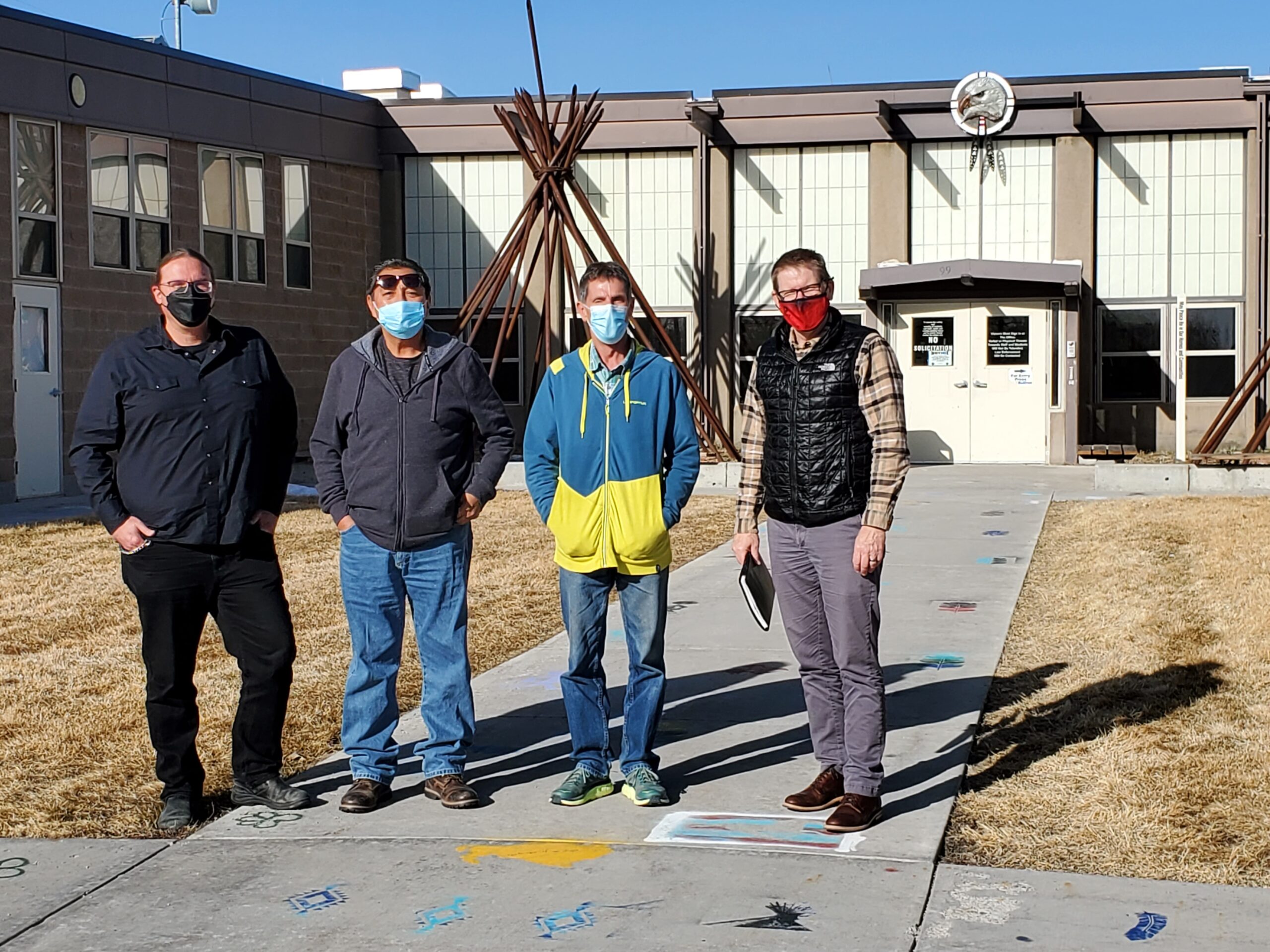Project Background
In School District 14 on the Wind River Reservation in Wyoming, which includes three rural schools with a Native American population of 99.9%, the graduation rate for high school students is a stark 58%. This is well below the national average of 86%. While many forms of environmental impacts (i.e. air pollution, energy scarcity, and food deserts) may help to explain this issue, monitoring of such problems is generally only done in urban areas. Such technology is not common in tribal and rural settings because these populations are often skipped during the process of technology transfer. Likewise, acceptance and inclusion of increasingly connected and rapidly-changing intelligent technologies, like those found in urban areas to assess such problems, may evade and overlook rural and tribal populations. This in turn excludes these groups from the benefits of smart enabled and connected communities, which have been found to bring new levels of economic opportunity and growth, safety and security, health and wellness, accessibility and improve the overall quality of life. From a research perspective, there is a need to better understanding the role technology can play in assuring equally resilient tribal and rural communities. Our group will take on three tasks. We will develop a short course over the summer to encourage interest in STEM and technology. We will work with the district to measure obstacles to technology acceptance. Finally, we will use a use-inspired approach to discover culturally sensitive ways of incorporating emerging technology into the local district and community.
This project is funded by a grant from the National Institute of Environmental Health Sciences (PIs: Sara Grineski and Tim Collins). In addition to being part of SPUR, it is also part of the HAPPIEST program. Applicants must be University of Utah students who identify in one or more of the following ways (defined by the National Institutes of Health): Blacks or African Americans, Hispanics or Latinxs, American Indians or Alaska Natives, Native Hawaiians, and other Pacific Islanders. Two students will be selected to work on this project together.
Student Role
Students accepted to this project will help in developing and deploying surveys related to self-reported technology beliefs and perceptions. Through working with project leads, students will learn how to craft questions that collect necessary information for science and technology data as well as explaining the impact and importance of air-quality sensing equipment and science to volunteers. Students will be given the opportunity to conduct extensive background research in the region while developing asset maps of the area to inform the team of what physical conditions the project can expect to work under. This may range from land ownership and status to mapping industrial and commercial factors over the region. In addition to material conditions on the ground, students will also perform ethnographic mapping using publicly available material and data obtained by the team. This requires research and knowledge of tribal relations in the United States, the history of the reservation system, and the current socioeconomic conditions of tribal members. Focus groups will also be central to the on-the-ground tasks for students and attending said groups to coordinate and manage questions and dialogue. Equitable communication will be vital as students interact with a community beyond their cultural background. Finally, data management will be a central skill in keeping the project orderly and managed.
Student Learning Outcomes and Benefits
Students will learn to incorporate equity, diversity, and inclusion frameworks into their research
Students will learn to create and conduct interviews and surveys
Students will learn to incorporate cultural sensitivity into research
Students will learn to manage and collect data for research purposes
Students will learn about ethics in research

Tabitha Benney
After teaching at the university level for ten years, I have come to value intellectual exchange (in its many forms) as my toolbox for teaching and learning. To encourage interaction, I often experiment with a variety of learning approaches and materials and this helps me to connect with students in various ways. To help my students to succeed, they need clear goals, encouragement, and a trusted role model to guide them. To facilitate this, my student learning goals include: critical thinking, relevant application, respect for other perspectives, and honest collaboration.
To get at these goals, our team has developed a mentoring program for all students and researchers. In addition to weekly mentoring through the SPUR program, students will be socialized to lab and team-science culture. We will introduce concepts of ethics and inclusion, respect, and even explore researcher identity. Teams will meet weekly for mentoring activities and separately for team meetings throughout the semester.
To learn more about HAPPIEST, please visit here!
